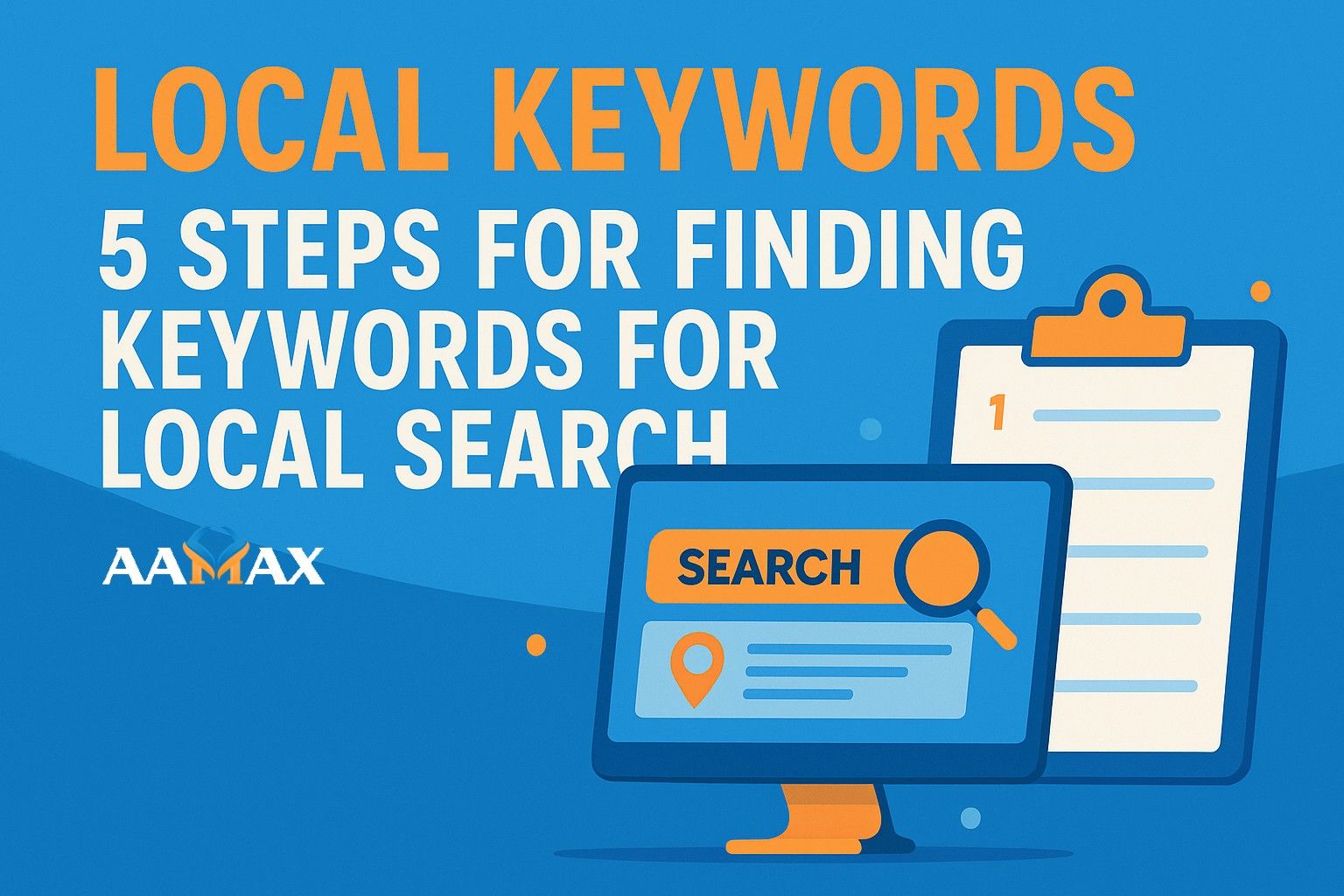
Local Keywords: 5 Steps for Finding Keywords for Local Search
In the world of digital marketing, local SEO has become a key differentiator for businesses targeting specific geographic areas. At the heart of local search engine optimization is keyword research—specifically, identifying the right local keywords that potential customers in your region are searching for. Whether you own a brick-and-mortar store, provide local services, or operate a multi-location business, optimizing for local keywords can significantly boost your visibility in search engine results.
In this guide, we’ll walk you through 5 actionable steps to find and use local keywords effectively.
What Are Local Keywords?
Local keywords are search phrases that include specific geographic locations. These keywords indicate that a user is looking for products, services, or information related to a particular area. For example:
- "dentist in Austin"
- "best pizza near downtown Chicago"
- "wedding photographer Los Angeles"
These keywords help Google understand the search intent and match it with businesses that serve the specified region.
Why Local Keywords Matter
Optimizing for local keywords helps businesses:
- Appear in local search results and map packs
- Drive targeted traffic from users nearby
- Increase foot traffic and phone calls
- Boost conversion rates with qualified leads
According to Google, 46% of all searches have a local intent, making local keyword optimization a high-return investment for location-based businesses.
Step 1: Understand Your Local Audience
The first step in finding effective local keywords is to understand who your customers are and how they search for your business.
Ask yourself:
- What services or products do they need?
- What neighborhoods, cities, or regions are you targeting?
- How do they describe your service or business type?
You can conduct customer surveys, review analytics data, or listen to customer inquiries to find patterns in how people talk about your services.
Step 2: Use Google Autocomplete and Related Searches
One of the easiest ways to discover local keywords is through Google Autocomplete. Simply start typing a relevant service and location into the search bar, and Google will suggest phrases based on popular searches.
For example, if you type:
"hair salon in"
You might see suggestions like:
- hair salon in Brooklyn
- hair salon in downtown Dallas
- hair salon in Phoenix with good reviews
Also, scroll to the bottom of the search results page to find "Related Searches"—these are commonly searched phrases related to your original query.
Step 3: Use Keyword Research Tools
Keyword research tools give you data on search volume, competition, and related keywords. For local SEO, these tools help identify which geographic combinations are most searched in your niche.
Recommended Tools:
- Google Keyword Planner – Great for estimating search volume by location.
- Ubersuggest – Offers local keyword ideas with volume and difficulty metrics.
- Ahrefs – Advanced keyword data, plus keyword gaps and competitor analysis.
- Moz Keyword Explorer – Provides suggestions, difficulty scores, and SERP analysis.
- BrightLocal – Designed specifically for local SEO keyword tracking and auditing.
Look for keywords that combine your core services with neighborhoods, cities, or landmarks. For example:
- "emergency plumber San Jose"
- "law firm near Times Square"
Step 4: Analyze Competitor Keywords
Your local competitors can be a rich source of keyword ideas. Here's how to reverse-engineer their strategy:
- Identify top-ranking competitors in your city or niche.
- Plug their website URL into tools like Ahrefs, SEMrush, or Ubersuggest.
- Check which local keywords are driving traffic to their site.
- Review their meta titles, headings, and Google My Business profiles.
You can often discover hidden opportunities or underserved search terms by reviewing what’s working for others in your area.
Step 5: Organize Keywords by Intent and Location
Once you’ve collected a list of keywords, it's important to organize them by search intent and location specificity.
Examples:
| Keyword | Intent | Location | | ---------------------------- | ------------- | ------------ | | "cheap car repair Miami" | Commercial | City | | "coffee shops near Union Sq" | Navigational | Neighborhood | | "how to find a realtor NYC" | Informational | City |
Organizing keywords this way helps in:
- Creating location-specific landing pages
- Structuring blog content for SEO
- Writing compelling meta descriptions
- Targeting long-tail keyword variations
Bonus Tips: How to Use Local Keywords Effectively
After identifying your target keywords, the next step is implementation. Here are some tips to use them for maximum impact:
1. Optimize Google Business Profile
- Include keywords in your business description
- Use location keywords in your posts and Q&A
2. Update On-Page SEO
- Use local keywords in page titles, headings (H1, H2), and URLs
- Add schema markup for local business info
- Optimize image ALT tags with location references
3. Build Local Backlinks
- Get listed on local directories (Yelp, YellowPages)
- Partner with local bloggers or news sites for coverage
4. Create Local Content
- Write blog posts targeting local events or concerns (e.g., "How to Winterize Your Home in Denver")
- Develop landing pages for each service area or city you serve
5. Track Performance
Use Google Search Console and local SEO tools to monitor:
- Impressions and clicks by location
- Keyword rankings for targeted areas
- Changes in traffic from specific regions
Final Thoughts
Mastering local keyword research is an essential skill for any business aiming to dominate local search results. When done right, it connects your brand with people actively looking for your services nearby.
By following these five steps—understanding your audience, using keyword tools, checking autocomplete and related searches, analyzing competitors, and organizing keywords—you’ll be well-equipped to drive local traffic and improve conversions.
For expert help in optimizing your site for local search, AAMAX. AAMAX is a full-service digital marketing agency offering Web Development, Digital Marketing, and SEO Services tailored to your business needs.







